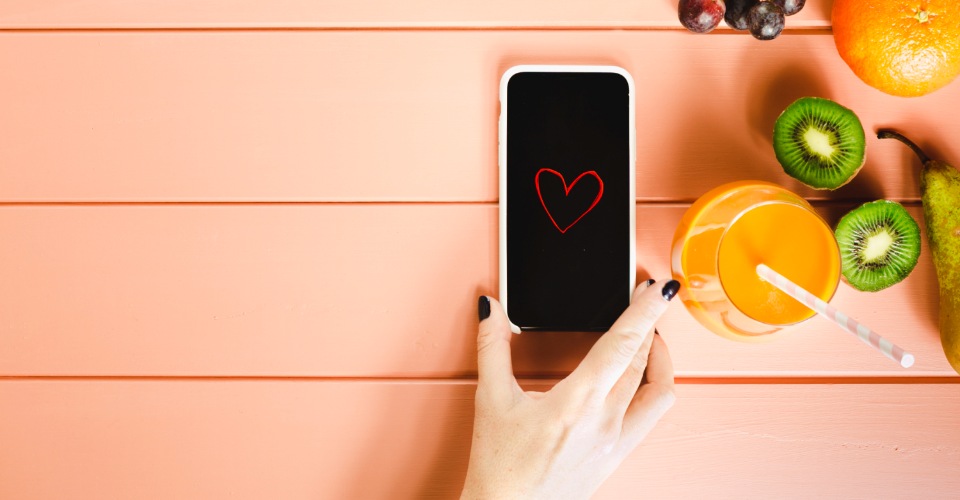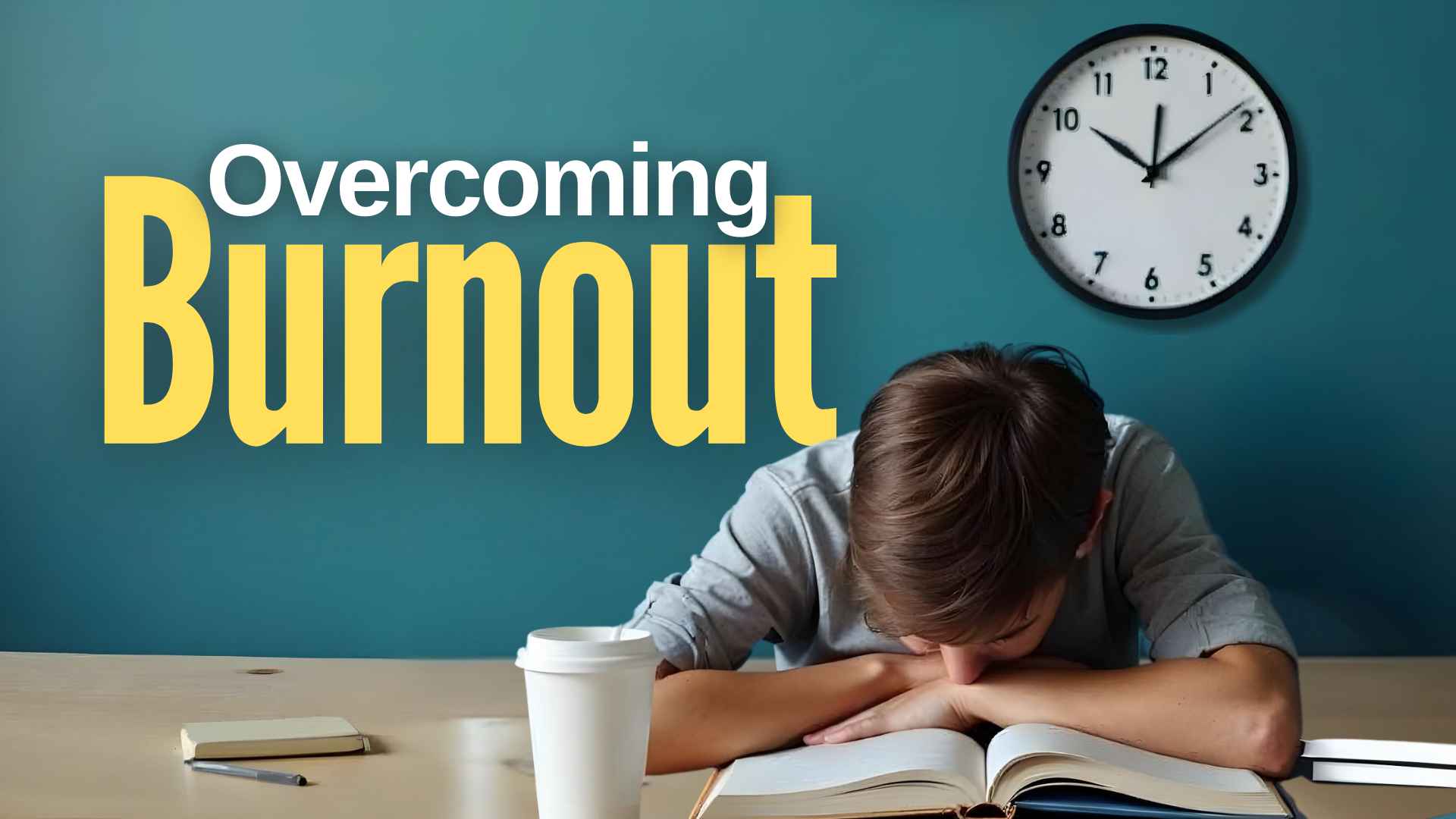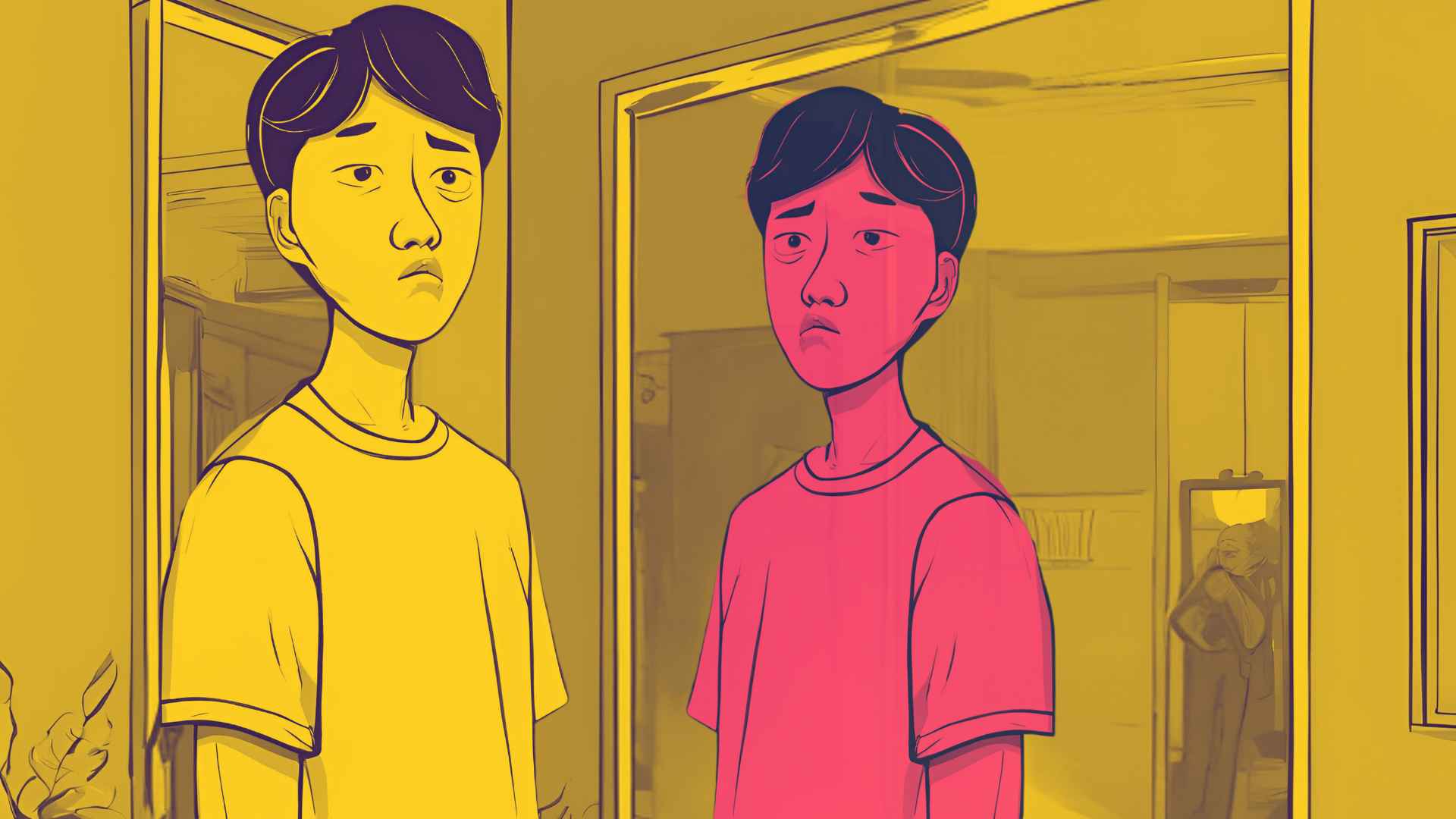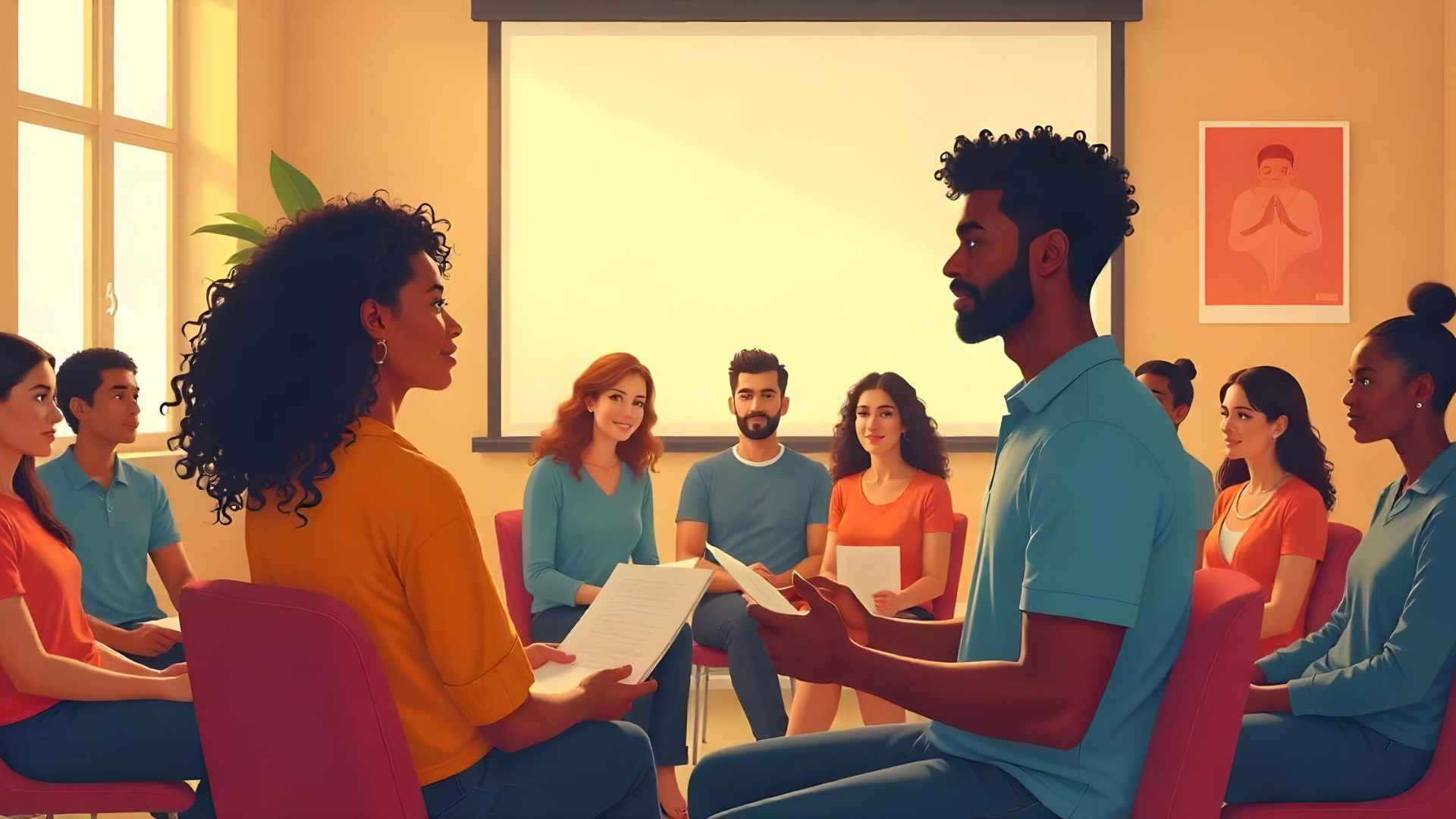A New Year, A Fresh Start
As the calendar flips to 2025, many of us reflect on the year gone by and how we can do better in the coming months. The digital world has undoubtedly become a huge part of our lives, but have you ever felt overwhelmed by the constant notifications, endless emails, or the pull of social media? If you’re feeling drained, it might be time for a digital detox. A tech break can help you reconnect with your goals, restore mental clarity, and prepare you for the challenges ahead.
Imagine starting the year with less stress, more focus, and a cleaner digital space. That’s the power of a digital detox and declutter. In this article, we’ll explore how you can declutter your digital life, take a mindful unplugging break, and make 2025 your most focused and balanced year yet.
Why You Need a Digital Detox in 2025
The Digital Overload Problem
We live in a world that’s constantly connected. In fact, the average person spends around 6 hours per day on their smartphone, checking everything from work emails to social media updates. While this digital world offers convenience, it can also lead to mental fatigue, burnout, and a sense of being overwhelmed. Studies show that 72% of people report feeling stressed by digital overload during the holiday season. This stress can carry over into the new year, affecting productivity and well-being.
Taking a digital detox allows us to step back, re-evaluate our relationship with technology, and find balance. By decluttering your digital space and setting boundaries, you can regain control over your time and focus on what truly matters.
Benefits of a Digital Detox
- Improved Mental Clarity: Stepping away from constant digital noise allows your mind to rest, which in turn can improve focus and creativity.
- Reduced Stress: Fewer notifications and less screen time can reduce anxiety, helping you feel more grounded.
- Better Sleep: Reducing screen time, especially before bed, can lead to improved sleep quality.
- Increased Productivity: With fewer distractions, you can focus better on important tasks and goals.
- Stronger Relationships: Taking a break from digital devices can help you connect more meaningfully with family and friends.
10 Digital Detox Tips
1. Organize Your Devices: A Digital Declutter
Embarking on a digital cleanse by organizing your devices is one of the first steps toward achieving a successful Digital Detox. A well-organized device can reduce distractions, help you focus, and improve your mental clarity by cutting out unnecessary clutter. Regularly organizing your devices helps you stay more productive and mindful of the time you spend on screens.
How to Begin:
- Uninstall Unused Apps: Did you know that most people only use about 20% of the apps on their phones? Go through your phone and remove apps you haven’t used in months. Unnecessary apps not only take up storage space but also contribute to digital clutter.
- Clear Your Downloads Folder: Often, we download files without thinking, and they accumulate in the Downloads folder. Take a few minutes to go through this folder and delete anything that is no longer needed. This simple task can reduce the time spent searching for important documents later.
- Clean Up Your Desktop: A cluttered desktop can be overwhelming and distracting. Having an organized desktop with files categorized in clear folders helps reduce mental clutter and improves focus. It also increases your device’s speed and performance.
By incorporating these steps into your Digital Cleanse, you’ll start the new year feeling lighter and more focused. A clean, organized digital environment leads to better productivity, reduced stress, and enhanced Mindful Unplugging.
2. Secure Your Digital Life
While decluttering your digital space, don’t overlook the importance of securing your devices and accounts. Weak passwords and old, forgotten accounts can leave you vulnerable to cyber threats. Taking time to protect your digital world not only reduces risks but also enhances your mental clarity by eliminating the anxiety of potential breaches.
Close Unused Accounts
Unused online accounts are a liability. Not only can they serve as distractions, but they can also become entry points for hackers. Closing accounts that you no longer use helps secure your personal information and reduces the clutter in your digital life.
- Tip: According to recent studies, over 60% of internet users have old accounts they no longer use, increasing their risk of cyberattacks.
Update Passwords Regularly
Weak or repetitive passwords can make it easier for hackers to gain access to your personal information. Using strong, unique passwords is key to safeguarding your accounts. A password manager can help you keep track of complex passwords across multiple platforms.
- Tip: Enabling two-factor authentication (2FA) adds an extra layer of protection. It’s proven to reduce the risk of hacking by 99.9% when combined with strong passwords.
By securing your digital life, you not only protect your data but also create a more streamlined, worry-free digital experience.
3. Email Overhaul: Declutter Your Inbox
An overflowing inbox can create mental clutter, making it harder to stay focused and organized. A cluttered inbox often results in wasted time searching for important emails and can increase stress. By clearing unnecessary emails and organizing the ones that matter, you can improve mental clarity and reduce distractions.
Tips to Overhaul Your Inbox:
- Unsubscribe from Unwanted Newsletters
Studies show that the average person receives 121 emails per day, many of which are from marketing campaigns or irrelevant newsletters. Taking a few minutes to unsubscribe from these can significantly reduce clutter. Simply scroll to the bottom of an email and click “unsubscribe” to stop future messages. - Set Email Filters and Folders
Instead of sorting through countless emails, create folders and filters to automatically sort incoming emails into categories. For example, set filters for work, personal, and promotions. This allows you to prioritize important emails and declutter your inbox without missing anything crucial. - Delete or Archive Old Emails
It’s essential to regularly delete or archive old emails to prevent them from piling up. Keeping only current, relevant emails reduces digital overload and boosts productivity.
By taking these steps, you can bring more mindfulness to your digital life, making your inbox a tool that helps, not hinders, your mental clarity.
4. Set Time Limits for Screen Use
A Digital Detox is not about completely disconnecting from technology, but about managing your screen time to improve mental clarity and focus. Setting boundaries around your digital usage can help you regain control over your time and reduce the stress that constant notifications can cause.
Limit Social Media Use
Social media can be a major source of distraction and anxiety. Research shows that excessive social media use can contribute to feelings of stress and dissatisfaction. By setting daily time limits on social media apps, you can reduce mindless scrolling and prevent digital burnout.
- Tip: Use apps like Screen Time (iOS) or Digital Wellbeing (Android) to set app limits and get insights into your screen usage.
Schedule Device-Free Time
Creating dedicated periods of time when you are offline is a powerful form of mindful unplugging. This could mean setting aside time during meals, family activities, or before bedtime to completely disconnect from your devices. Studies show that tech breaks can lead to improved sleep quality and reduced stress.
- Tip: Try to keep your phone out of the bedroom to improve sleep hygiene, allowing your mind to rest without digital distractions.
By setting these boundaries, you can enjoy the benefits of technology without letting it take over your life.
5. Designate Tech-Free Zones for Better Mental Clarity
In today’s digital age, it’s crucial to establish boundaries around technology use. Designating specific spaces where screens are off-limits can significantly reduce distractions and promote mindfulness, improving both mental and physical well-being.
Why It Matters
Research shows that excessive screen time, especially before bed, can disrupt sleep and negatively affect mental clarity. The American Academy of Sleep Medicine notes that blue light from screens can hinder the production of melatonin, a hormone essential for sleep. A tech-free zone can help mitigate these effects, allowing your mind to unwind and recharge.
How to Create Tech-Free Zones:
- Tech-Free Bedrooms: Keep devices out of your bedroom to enhance sleep quality. Use this space to relax, read, or engage in other offline activities that promote restfulness.
- Unplug During Meals: Designate meal times as opportunities to reconnect with family or friends without the distraction of screens. Studies show that mindful eating can improve digestion and foster better relationships.
- Work-Free Spaces: Create a space in your home or office where you focus solely on personal activities, free from the intrusion of emails, notifications, and apps.
Establishing tech-free zones helps create a more intentional, balanced lifestyle, boosting mental clarity and overall well-being.
6. Streamline Your Digital Files and Folders
Organizing your digital files is an essential step in achieving a successful Digital Detox. A cluttered digital space can cause unnecessary stress and hinder productivity, making it difficult to stay focused. By creating a streamlined system for your files and folders, you can improve both your mental clarity and your workflow.
How to Begin:
- Create a Folder System:
Organizing your files into clear, logical categories—such as work, personal, projects, and media—will help you find what you need quickly. A well-organized digital structure reduces wasted time spent searching for documents and ensures better efficiency. - Delete Redundant Files:
Many of us accumulate multiple versions of the same document. For example, you might have several drafts of the same file. Choosing the most recent version and deleting the outdated ones will not only free up storage space but also provide mental clarity, as you won’t be distracted by outdated information.
Statistical Insight:
According to a study by The New York Times, employees spend an average of 2.5 hours a day searching for information on their devices. This amount of time could be significantly reduced by having an organized digital system, allowing for better Mindful Unplugging and more focused work.
By dedicating time to streamline your digital files, you’ll reduce stress and increase your productivity, setting a strong foundation for your Digital Cleanse.
7. Manage Notifications Wisely
In today’s digital age, notifications from apps, emails, and social media can be constant and overwhelming. These interruptions can lead to increased stress and decreased productivity. By managing your notifications wisely, you can reclaim control over your time and enhance your mental clarity.
The Impact of Notifications
- Increased Stress: Studies show that receiving frequent notifications can trigger stress responses, especially if they are work-related or from social media, where comparison and anxiety are common.
- Decreased Focus: According to research from the University of California, Irvine, people are interrupted every 11 minutes, and it can take up to 23 minutes to refocus after each interruption.
How to Begin:
- Turn Off Non-Essential Notifications: Disable alerts for apps that don’t require immediate attention. For example, turn off notifications for news apps or social media updates that are not urgent, reducing unnecessary distractions.
- Use “Do Not Disturb” Mode: Schedule blocks of time during the day when you deliberately avoid interruptions. This mode helps you focus on work, family time, or relaxation without the constant pull of your devices.
- Prioritize Important Alerts: Ensure only critical notifications, such as emails from family, work, or essential apps, come through during your “Do Not Disturb” periods.
Taking control of your notifications is a key step in a digital cleanse, contributing to a more intentional and mindful use of technology.
8. Backup Important Data Regularly
A key part of your Digital Detox is ensuring your data is protected. Regular backups help safeguard your valuable files, photos, and documents from unexpected device failures or digital threats, allowing you to focus on more important tasks without worrying about potential losses.
Why Backup Matters:
- Prevents Data Loss: According to a 2023 survey, 60% of users experience data loss due to device failure, accidental deletion, or cyber threats. Regular backups ensure you don’t lose important information like work files, family photos, or important emails.
- Peace of Mind: Regular backups reduce the stress of losing years of data and memories. This contributes to mental clarity, helping you feel more organized and in control of your digital life.
How to Begin:
- Use Cloud Storage: Cloud services like Google Drive, Dropbox, and iCloud offer secure, automatic backups that sync across your devices. This ensures you have access to your files from anywhere, at any time.
- Tip: Schedule automatic backups to avoid forgetting.
- Create Offline Backups: Using external hard drives or USB drives provides an additional layer of security. It’s particularly useful for large files like videos or photos that may fill up cloud storage quickly.
By maintaining regular backups, you ensure that your Digital Cleanse isn’t just about decluttering, but also about protecting your digital life from unforeseen mishaps.
9. Streamline Social Media Accounts
Social media can easily become a source of stress and digital clutter if you’re following too many accounts or engaging with irrelevant content. Streamlining your social media experience is an effective way to regain control and reduce screen time, leading to better mental clarity and a sense of peace.
Why Streamlining Matters:
- Reduced Distractions: Research shows that 60% of social media users feel distracted or overwhelmed by the content they encounter daily. Overloading your feed with unnecessary accounts can lead to stress and reduced productivity.
- Improved Focus: Simplifying your social media allows you to focus on content that truly matters, supporting a more intentional and fulfilling online experience.
How to Begin:
- Unfollow Unnecessary Accounts: Review the people and brands you follow. If their content no longer serves you or aligns with your interests, it’s time to unfollow. This creates a more tailored experience, reducing unnecessary distractions.
- Create Custom Lists or Groups: Many platforms allow you to group accounts into categories. Curating specific lists of friends, family, or interests ensures you’re only seeing relevant content, avoiding the noise from irrelevant posts.
By streamlining your social media accounts, you engage in a digital detox, allowing more time for mindful unplugging and reducing digital overwhelm.
10. Declutter Your Digital Shopping Habits
Digital shopping has become an integral part of our lives, but it can quickly contribute to digital clutter. Unused subscriptions, overflowing shopping carts, and forgotten wishlists are common distractions that hinder mental clarity. By managing your shopping habits, you not only reduce digital clutter but also avoid unnecessary financial waste and emotional stress.
Why It’s Important:
- Financial Control: A study by Deloitte found that 33% of consumers regret their online purchases, contributing to unnecessary spending.
- Mental Well-Being: Excessive online shopping and browsing can lead to feelings of overwhelm, affecting your overall mental health and focus.
How to Begin:
- Cancel Unused Subscriptions: Review your digital subscriptions, such as streaming services, software tools, and product deliveries. Cancel subscriptions that you no longer use, saving both money and storage space on your devices.
- Clear Shopping Carts and Wishlists: Online shopping carts often serve as a constant reminder of unfulfilled desires, leading to unnecessary distractions. Regularly empty these carts and remove items from wishlists that no longer serve a purpose, promoting a clearer, more intentional digital space.
By decluttering your digital shopping habits, you promote a digital detox that fosters better decision-making, financial responsibility, and enhanced mental clarity.
Key Takeaways
- A digital detox is essential for mental well-being, productivity, and physical health.
- Tech breaks and mindful unplugging help you reclaim your time and focus on the things that truly matter.
- Decluttering your digital life and setting boundaries with technology can improve your overall happiness and clarity.
At a Glance
| Action | Benefit |
|---|---|
| Uninstall unused apps | Streamlined device and less clutter |
| Clean up your inbox | Less stress and distractions |
| Set screen time limits | Improved focus and less time wasted |
| Designate tech-free zones | Better sleep and stronger relationships |
FAQs
How long should my digital detox last?
A digital detox can range from a few hours to several days or even weeks. Start with a weekend and gradually extend the duration based on your comfort level.
Will I miss out on important updates during a detox?
If you’re concerned about missing important information, you can still stay connected by setting specific times to check emails or social media.
How can I prevent digital burnout after my detox?
After your detox, establish new habits like taking regular breaks, scheduling screen-free time, and practicing mindful digital use to prevent burnout.
Conclusion: A Fresh Start Awaits
The new year is the perfect time to reset and start fresh. By embracing a digital detox and decluttering your devices, you can reduce stress, increase productivity, and regain control over your time. A mindful approach to technology use will help you prioritize what truly matters, leaving you more connected to yourself, your loved ones, and your goals for 2025. So, let’s take that tech break, create a mental clarity plan, and begin the new year with a healthier, more balanced approach to technology.





















Leave a Reply
You must be logged in to post a comment.